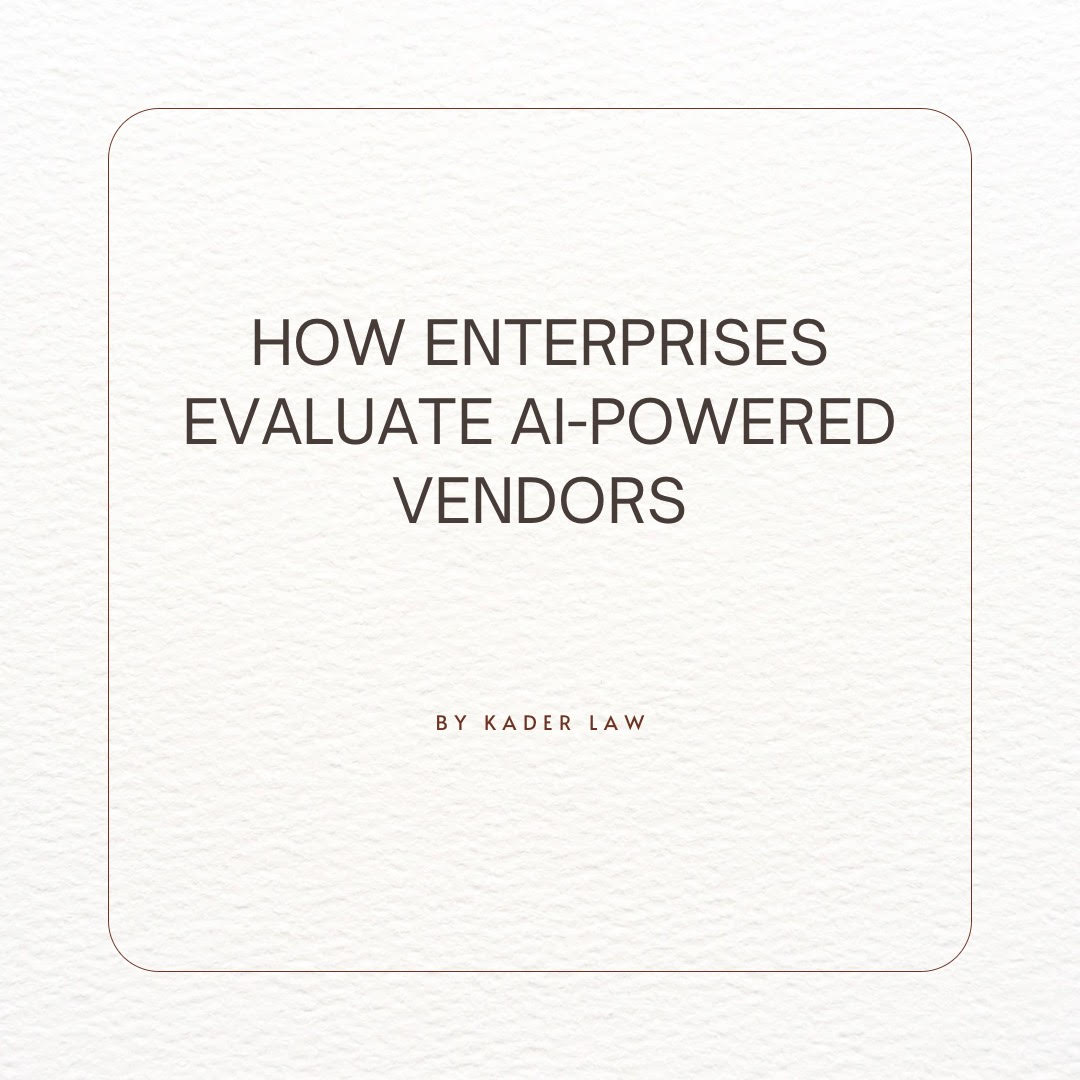Risks of AI Wrapper Products and Features

Many companies are building AI-powered products and features using “wrappers”- applications that sit on top of large language model AI vendors like ChatGPT,Claude, Gemini, or Llama 3. While this approach can save time and money, italso introduces serious legal, technical and data-governance risks. This post will give you a high-level overview of the risks involved in AI WrapperProducts and Features.
1. Model Training Risk
The most immediate risk is that the wrapper product inadvertently feeds customers’ data into a third-party model’s training pipeline. Even if the AI vendor you’re working with claims that “API data isn’t used for training,” those policies can shift - and the definitions of training, fine-tuning, or model improvement aren’t always clear. In some cases, logs, metadata, or “aggregated”data may still be retained for system learning or abuse detection.
If your customers send sensitive, proprietary, or personal data through your product, and that data ends up improving someone else’s model, you could be responsible for:
- Breaching confidentiality or privacy commitments
- Losing control of trade secrets or proprietary logic
- Violating data-protection laws like GDPR, CCPA, or HIPAA
- Facing downstream liability if that information resurfaces elsewhere
Consider negotiating “no-training” and “no-retention” clauses with your AI vendor. Use input filters to scrub personal or confidential information before sending prompts. Don’t log raw prompt data unless necessary - and if you do, store it securely and delete it promptly.
2. Vendor Lock-In
Your product lives and dies by your AI Vendor’s uptime, pricing, and policy choices.
If your AI Vendor decides to throttle API access, changes terms, or adjusts pricing, your entire product may stall overnight.
Design your architecture for flexibility so you can swap providers (or use multiple). Keep a backup plan, such as an open-source fallback model or fine-tuned instance, in case your primary vendor goes down or your contract changes.
3. Content Liability and Output Risk
When your product surfaces AI-generated text, you own the customer relationship, and potentially the liability.
You could face claims tied to:
- Inaccurate or misleading output
- Copyrighted or plagiarized content
- Defamatory or biased statements
- Misuse in regulated contexts (e.g., medical, financial, or legal advice)
Add human-in-the-loop review for high-risk outputs, implementing content moderation filters, and including clear disclaimers and limitation of liability terms in your Terms of Service. Be transparent about what your product does and doesn’t do. Overpromising “AI accuracy” is a quick way to create both legal and reputational exposure.
4. Loss of Control and Audits
When you rely on an AI Vendor for the intelligence layer, you can’t fully explain or audit how results are generated.
This becomes a problem for compliance audits, user disputes, or regulator inquiries. Without visibility into the model’s training data or decision logic, your ability to justify results is limited.
Retain and log contextual metadata (without personal data) about inputs, outputs, and parameters. This gives you a defensible record of how your system operates, even when the model itself is a black box.
5. Transparency and User Trust
If your product is effectively a branded shell over an AI Vendor, you owe your users clarity. Misleading marketing - or hiding your dependency on another company's system - can backfire.
Be open that your product leverages a third-party model. Explain what’s custom (your data, prompts, or workflow) and what isn’t. This transparency builds trust and manages expectations when the model inevitably makes mistakes.
Let Us Help
Building a wrapper over an AI Vendor can be an efficient path to market - but it’s not a free pass. You’re still the responsible party in the eyes of your customers and regulators. This post is just a high-level overview, and there are more specific nuances that must be considered. If you need help - reach out to Kader Law.
This post is not legal advice, and does not establish any attorney client privilege between Law Office of K.S.Kader, PLLC and you, the reader. The content of this post was assisted by generative artificial intelligence solutions.
Maybe you will like this
Let's Connect
We’re here to help.
Location
Contact
Law Office of K.S. Kader, PLLC
1629 K St. NW, Suite 300
Washington, DC 20006



